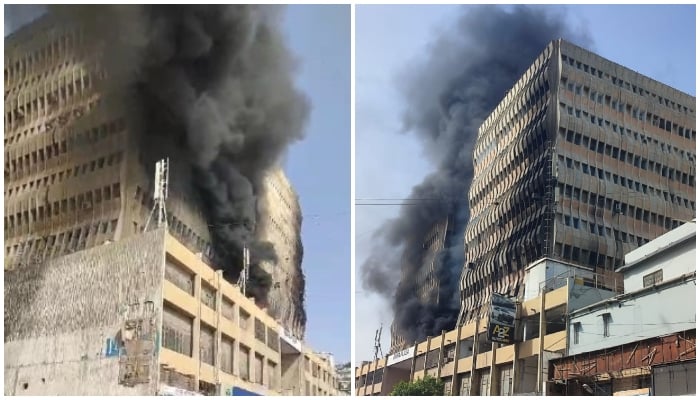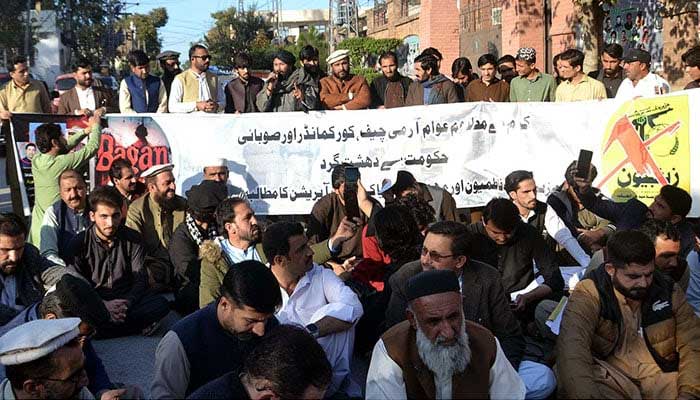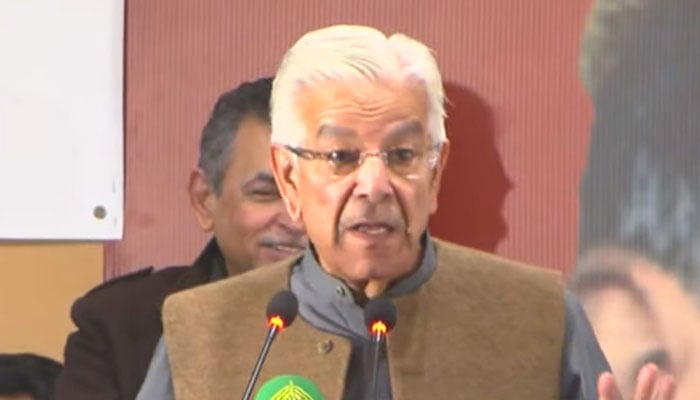Karachi tops world’s most polluted cities list amid cold weather
Concentration of toxic PM2.5 pollutants in port city 32.4 times higher than WHO guidelines
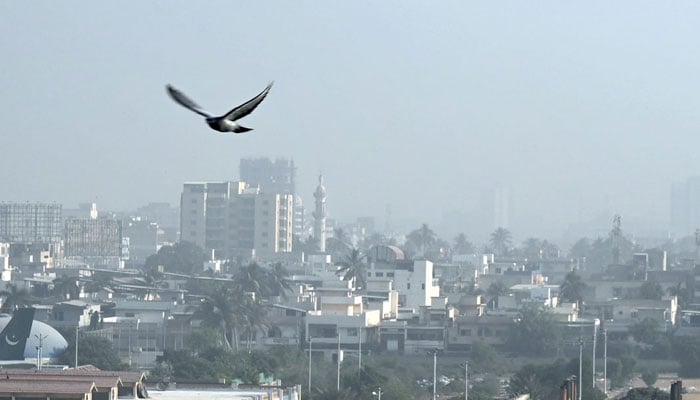
- AQI of country’s financial hub reaches “unhealthy” 271.
- PM2.5 level recorded at 32.4 times higher than WHO levels.
- Punjab’s capital Lahore ranks as fourth most polluted city.
KARACHI: Residents of the country’s financial hub woke on Tuesday to a deteriorated air quality, which made Karachi the most polluted city in the world this morning.
According to Swiss air quality monitor IQAir, the city’s Air Quality Index (AQI) value stood at 237, a level classified as “very unhealthy” by the group.
The concentration of toxic PM2.5 pollutants — fine particulate matter small enough to enter the bloodstream when inhaled — was measured at 162 µg/m³, which is 32.4 times higher than the World Health Organisation (WHO) guidelines.
The worsening air quality can be a result of the city’s cold weather, as the smog and air pollution issues are common during winter when lower temperatures trap the dust particles closer to the ground.
The minimum temperature in Karachi was recorded at 10.5 degrees Celsius during the past 24 hours, the Pakistan Meteorological Department’s (PMD) data showed. The mercury level is expected to range between 9°C and 11°C during the next one day.
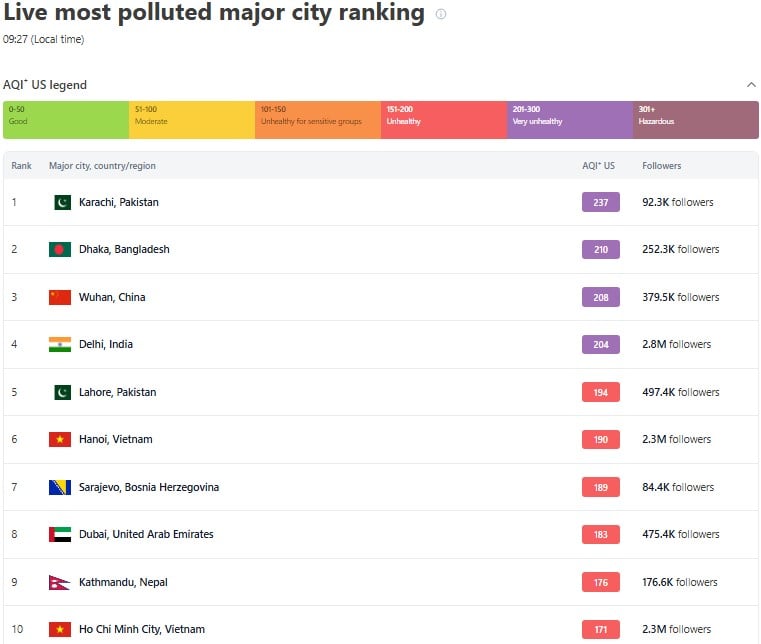
The Met Office has said that with humidity levels of 41%, coupled with an eight to 10 kilometres per hour wind from the northeast, the maximum temperature is expected to remain between 25 to 27°C.
However, the correlation between cold weather and poor air quality is not limited to Karachi as Punjab’s capital Lahore too is ranked as the fifth most polluted city with “unhealthy” AQI of 194.
Bangladesh’s capital Dhaka (210) is second on the list followed by China’s Wuhan (208) and India’s Delhi (204) at fourth place.
Every winter, a mix of low-grade fuel emissions from factories and vehicles, exacerbated by seasonal crop burn-off by farmers, blanket parts of Punjab, trapped by cooler temperatures and slow-moving winds.
The smog situation spreads to other cities of the country, including Karachi.
Breathing toxic air has catastrophic health consequences, with the WHO warning that strokes, heart disease, lung cancer and respiratory diseases can be triggered by prolonged exposure.



